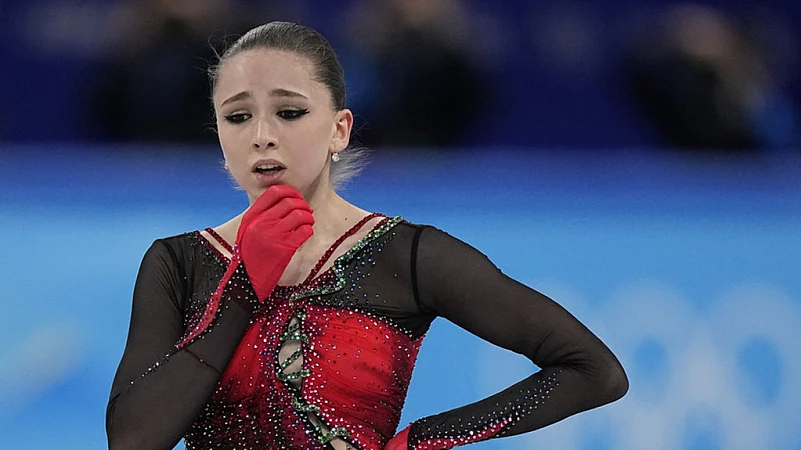Muscovites expressed their anger and disbelief Thursday after reports that Russian skating superstar Kamila Valieva had tested positive for a banned substance. (More Sports News)?
Beijing Winter Olympics: Anger And Disbelief In Russia After Kamila Valieva Positive For Banned Medication
Kamila Valieva had been expected to deliver her nation its third-straight Olympic gold medal in women's figure skating.

The 15-year-old Valieva had been expected to deliver her nation its third-straight Olympic gold medal in women's figure skating. But the Russian newspaper RBC reported that Valieva tested positive for a heart medication before the Beijing Games.
The drug in question, trimetazidine, is a metabolic agent that helps prevent angina attacks and treats vertigo, according to the European Union's medicines agency.?
It is banned by the World Anti-Doping Agency because it can help endurance and increase blood flow efficiency - either effect could help a figure skater.
"I think it is very strange that the test was positive in December, after which she was allowed to compete in the Olympic games and win gold and only after the announcement of the results they decided to remember about the test from December. This looks slightly suspicious," said Tatyana Smirnova, a 20-yer-old student from Moscow.
Pensioner Nikolai Stashenkov accused Western politicians of meddling into sports with the allegations of doping.
"It isn't about sport, it's about dirty politics," he told the AP.
Valieva's sample was reportedly obtained before she won the European championship last month in Estonia, a performance that solidified her status as the leader of Russia's "quad squad" of elite women's figure skaters.
The International Skating Union, the sport's governing body, said in a statement that it "cannot disclose any information about any possible anti-doping rule violation."?
It is unclear whether Valieva applied for a therapeutic use exemption to use a substance or has a history of heart problems.
Margarita Pakhnotskaya, an independent international expert for the World Athletics sports governing body, told the AP there is no medical reason to have taken the banned substance as their are analogues on the market that treat the same conditions but don't have the banned substance.
"Another medicine can be taken if there is a need in the athlete's health to treat something—to protect (their) heart or something of that kind—that does not contain this particular substance," she added.
Meanwhile, Valiev's case is even more complicated because minors suspected of antidoping rule violations are protected from being identified under the World Anti-Doping Code.
According to Margarita Pakhnotskaya, athletes who are minors "could enjoy more flexibility while being revised (reviewed) for possible antidoping rule violations" under the new code, and cases of the possible violation should be reviewed by the athlete's support personnel.
- Previous StoryWomen's T20 WC 2024: Fatima Sana Seals Pakistan's 31-Run Victory Over Sri Lanka In Campaign Opener
- Next Story

























